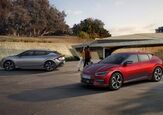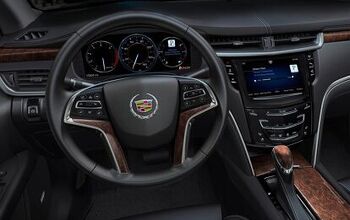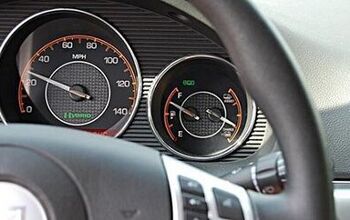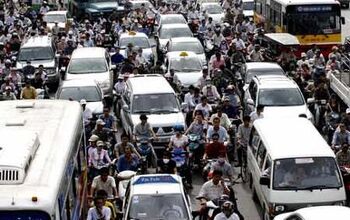Boomers Boom Followed By Car Bust

Consulting firm Alix Partners predicts a slowdown of U.S. auto sales. The study, reported at Reuters, cites the usual suspects, such as lingering high unemployment, increased costs and more people driving less. It then touches on something that is very basic, but often overlooked: Sales are driven by the number of potential buyers. If there are fewer buyers, there will be fewer buys. New cars are bought in certain age groups, usually somewhere at around 35 and up. As the boomers are going out to pasture, there simply will be fewer potential buyers.
The peak of car demand in the early 2000s coincided with a population peak in the new car buying age. Likewise, a long valley in the new car buying age will pull down sales for decades until a peaklet of today 20 year olds starts buying new cars.
In the U.S., the effects of these population peaks and valleys are expected to be not as harsh as in Europe and Japan, where births dropped drastically beginning in 1970. This valley is now 40 years old, and it will impact car sales for a long time.

Bertel Schmitt comes back to journalism after taking a 35 year break in advertising and marketing. He ran and owned advertising agencies in Duesseldorf, Germany, and New York City. Volkswagen A.G. was Bertel's most important corporate account. Schmitt's advertising and marketing career touched many corners of the industry with a special focus on automotive products and services. Since 2004, he lives in Japan and China with his wife <a href="http://www.tomokoandbertel.com"> Tomoko </a>. Bertel Schmitt is a founding board member of the <a href="http://www.offshoresuperseries.com"> Offshore Super Series </a>, an American offshore powerboat racing organization. He is co-owner of the racing team Typhoon.
More by Bertel Schmitt

































Comments
Join the conversation
The Boomer effect on car sales will be severe, and not just because their peak income years are over. It will be severe because Boomers have effectively spent the wealth of 3 generations, and that sort of thing creates a huge financial hangover. 1. Boomers spent the inheritance passed on by their frugal Depression-era parents 2. Boomers are spending every dime of their own lifetime earnings 3. Boomers mortgaged their children's future with 30 years of unaffordable social programs and other "love generation" pipe dreams.
Can't afford new car, can't qualify for the loans, and have heard 'never buy new' for years, so what to expect? And, "30 years of social.."? Asif it started in 1982, when Reagan was in office? How about that Vietnam War, Gulf War, and Iraqi Freedom? They were not cheap. BTW: Boomers had to pay for Depression era, Korean War, and WWII debts, so don't get all cocky. Previous generations paid for Civil War, new states, colonization, etc, so get over it.
Back in the 50's Detroit was happy to palm a wage & turn a profit. Today its done no-wage-robots and all about getting the shareholders a 10% yield.
This pyramid conflicts with the meme that the baby boomers are such a large part of the population. Using the popular definition of a boomer as some born between 1946 and 1961, the average age of said boomer would be 59. However, the populations of the 55 and 60 and year olds according to this chart are smaller than younger bands below them. This would tell me that there is no population "cliff" and that demographics are not the reason to expect lower auto sales in the coming years. Has more recent immigration to the US masked this by adding to the younger population bands? Am I missing something here?